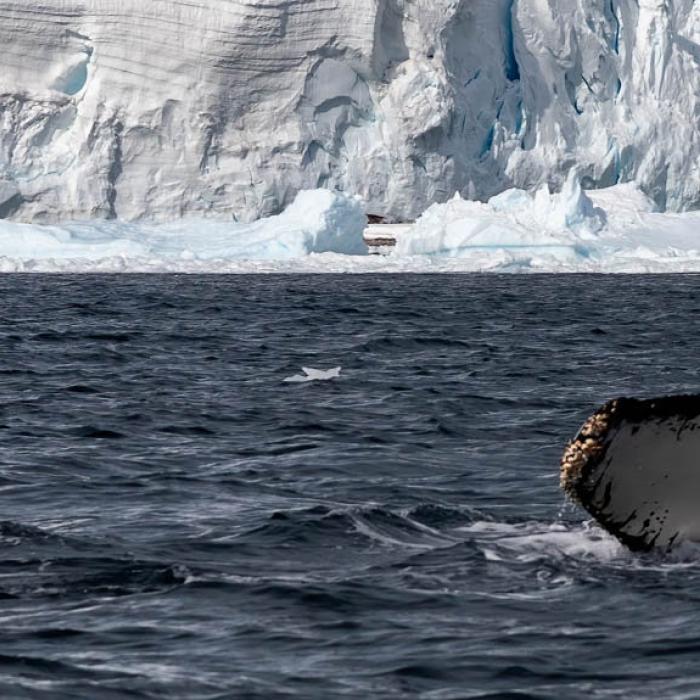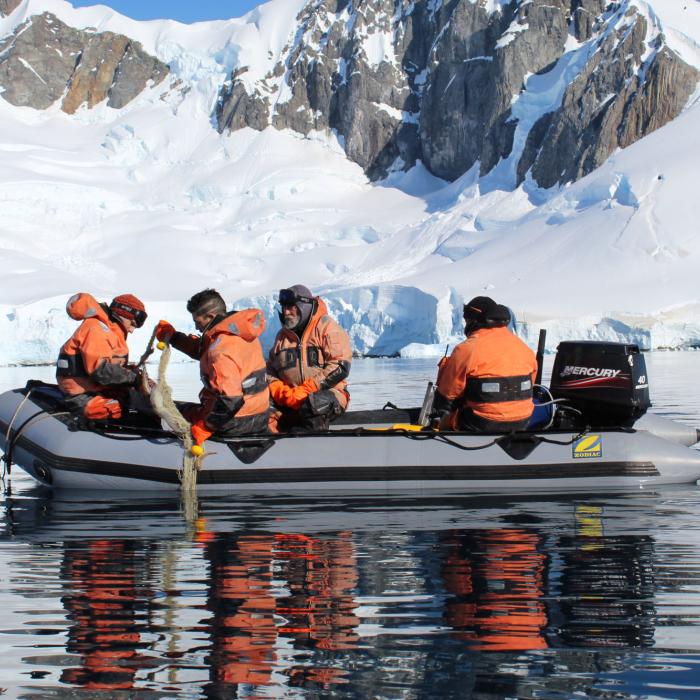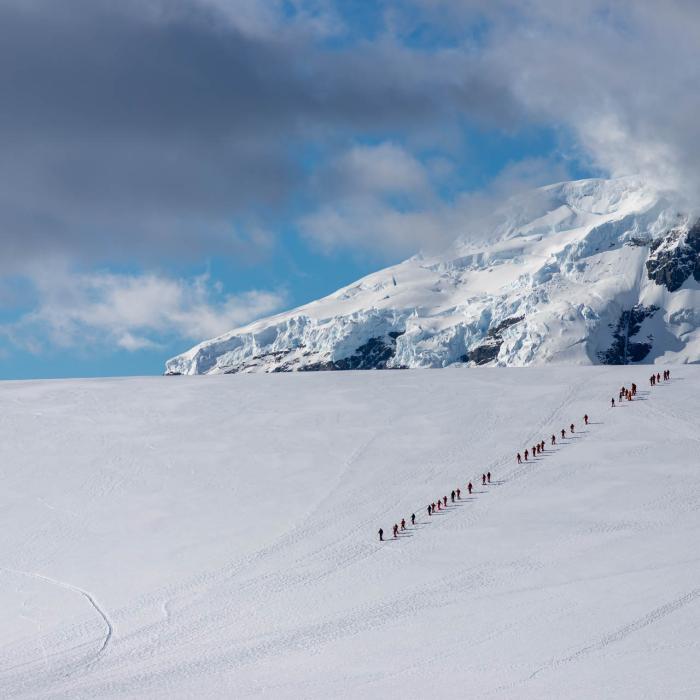
Women's History Month: It’s Time to Change the Narrative Around Women and the White Continent
Women’s History Month is here and with it an unmissable opportunity to shine a light on the magnificent female firsts woven throughout Antarctica’s rich history. Dr Joanna Kafarowski, scholar, geographer and author with a passion for researching, writing and lecturing about women and polar history, sets the scene for our month-long celebration of women and the white continent.
For the last two decades my professional life has been devoted to researching, writing, and lecturing about women in polar history. I’m passionate about sharing untold stories about women who dare to do audacious things in cold places. There are lots of them!
I love my work and I know it’s important because the polar exploration narrative is still dominated by tales of old white guys from over a hundred years ago. The shelves of bookshops are heaving with titles about Shackleton, Scott and Amundsen and the Heroic Age of Exploration as well as adventurous stories of derring-do associated with specific expeditions that are written about men and usually by men. But where are the books about remarkable polar women and what we have accomplished? There are a few histories and a small but perfectly formed group of biographies, but this literature remains woefully sparse.
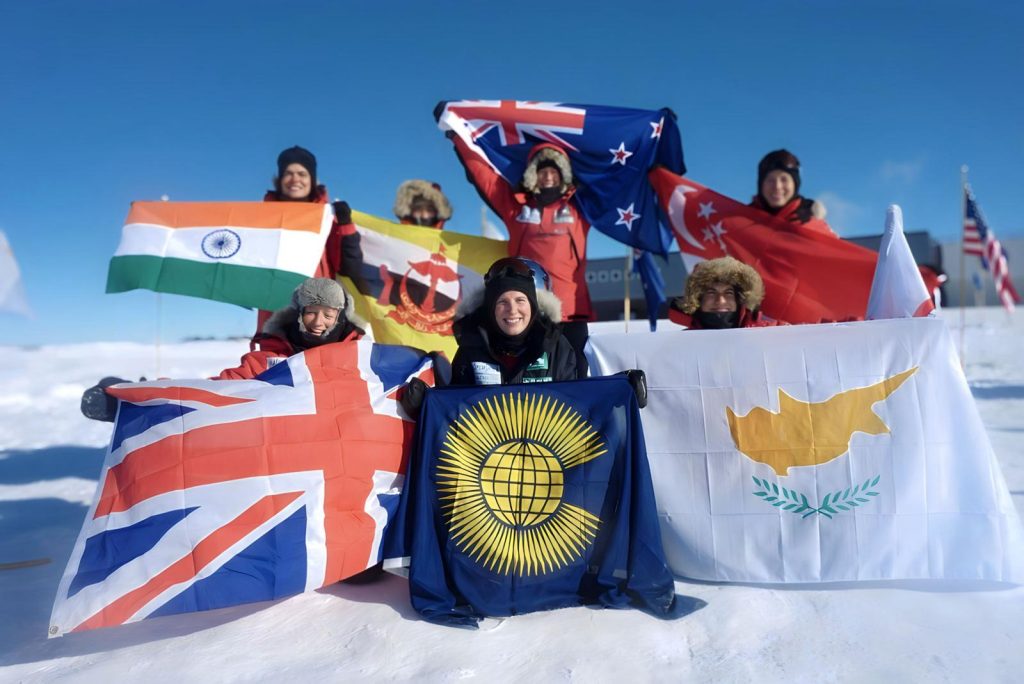 The women of the Kaspersky Commonwealth Antarctic Expedition 2009: Felicity Aston (United Kingdom), Najibah Eradah (Brunei), Reena Kaushal Dharmshaktu (India), Sophia Pang (Singapore), Stephanie Solomonides (Cyprus), Helen Turton (United Kingdom), and Kylie Wakelin (New Zealand).
The women of the Kaspersky Commonwealth Antarctic Expedition 2009: Felicity Aston (United Kingdom), Najibah Eradah (Brunei), Reena Kaushal Dharmshaktu (India), Sophia Pang (Singapore), Stephanie Solomonides (Cyprus), Helen Turton (United Kingdom), and Kylie Wakelin (New Zealand).Many readers, bookshops and publishers are unaware that women have played significant roles in polar history as explorers and scientists but also as patrons, mapmakers, advisors, historians, and policymakers. Even when a woman is as well-known as American Jackie Ronne, her own considerable achievements as the first active female participant of an Antarctic expedition, supporter of the original Antarctic Treaty and pioneer of Antarctic tourism, are eclipsed by her association with her controversial husband, explorer Finn Ronne. It still makes my blood boil when I hear her dismissed as an American housewife who merely accompanied her husband to Antarctica. It’s a straightforward affair to learn more about how men have contributed to Antarctica but dig deeper, ask more probing questions and that’s where you uncover the treasure that is the history of polar women.
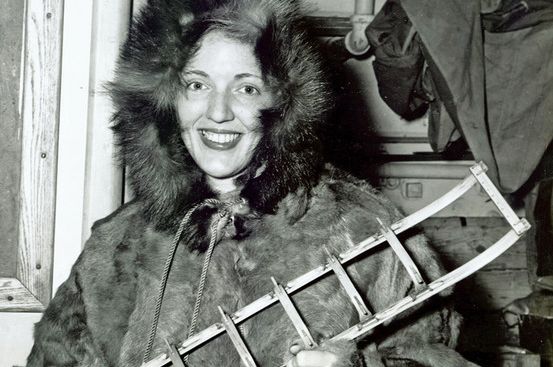 Jackie Ronne - the first woman to participate in an Antarctic expedition.
Jackie Ronne - the first woman to participate in an Antarctic expedition.Antarctica is still a place where women can be pioneers. Challenges and barriers to women’s involvement in Antarctica still exist but they can be overcome. Many people think that all the battles have been won and that it’s an equal playing field for women and men but that’s not entirely true.
I hope that women working in Antarctica today are inspired by the stories of the women who came before them. It’s easy to think that you travel and work there based on your own merit and, to a large degree, of course, this is true. But it is a cold, hard fact that for many decades, men were the gatekeepers here. It was the Navy commanders, the senior scientists, the heads of national polar organizations and the husbands who categorically opposed the participation of women – indeed, even the presence of women, in Antarctica. It’s hard to fathom that the U.S. Antarctic Program only ‘allowed’ female scientists to work there in 1969 and that the British Antarctic Survey only granted women scientists this right in 1983.
Every woman who goes to Antarctica today is there because of another woman who came before her - a woman who held fast to her dreams and overcame bitter resistance to reach Antarctica. It’s critical to give credit to these pioneers and to help other women who will come along in the future.
As the consequences of the climate crisis become more apparent in Antarctica, our understanding of the role women have played in polar history and women’s engagement in addressing emerging issues in Antarctica, is imperative.
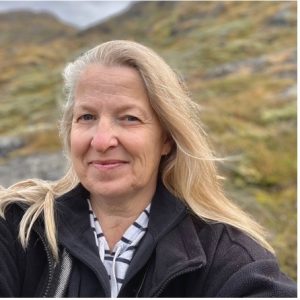
About the author | Dr Joanna Kafarowski
Dr Joanna Kafarowski is a Fellow of The Royal Geographical Society, a Fellow of The Explorers Club and a Director of the Society of Woman Geographers. She is the author of Antarctic Pioneer The Trailblazing Life of Jackie Ronne (Dundurn, 2022) and The Polar Adventures of a Rich American Dame A Life of Louise Arner Boyd (Dundurn, 2017). Joanna is currently working on her next book about women’s exploration of Greenland which will be published by Princeton University Press.
